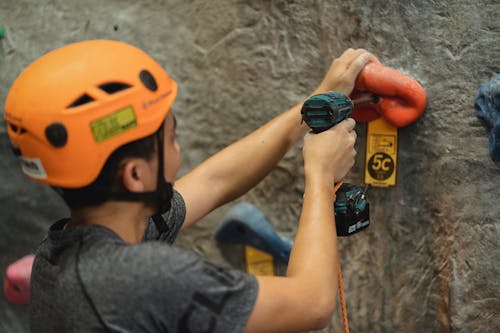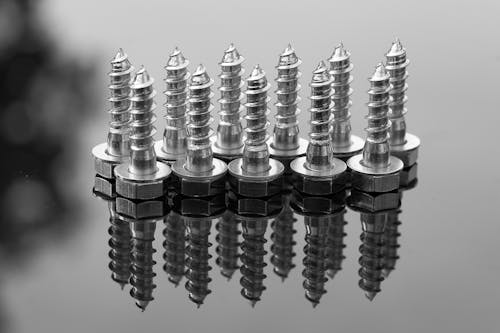In the intricate world of construction and manufacturing, every detail counts, and no detail is more fundamental than the choice of fastener. Fasteners are the unsung heroes, holding together the structures that surround us, ensuring stability, durability, and safety. Whether you’re building a skyscraper or assembling a piece of furniture, the right fastener is essential for success.
However, navigating the myriad options available can be overwhelming. With materials ranging from stainless steel to brass, and types including bolts, screws, nails, and rivets, choosing the perfect fastener for your project can feel like finding a needle in a haystack.
But fear not! Our ultimate guide is here to demystify the process and empower you to make confident decisions. Whether you’re a seasoned professional or a DIY enthusiast, join us as we delve into the world of fasteners, uncovering the secrets to selecting the ideal one for your project. From understanding your project’s unique needs to exploring the latest innovations in fastener technology, we’ve got you covered. So, let’s dive in and unlock the secrets to success with the perfect fastener for any project.

1.Understand Your Project Needs:
Before selecting a fastener, analyze your project’s requirements thoroughly. Consider factors such as the materials being joined, the load that will be applied, environmental conditions, and the desired lifespan of the connection. For example, outdoor projects may require fasteners resistant to corrosion, while projects involving heavy loads may necessitate stronger, more durable options.
2.Know Your Materials:
Different materials offer varying levels of strength, corrosion resistance, and aesthetics. Stainless steel is prized for its durability and resistance to rust, making it suitable for outdoor and marine applications. Aluminum is lightweight and corrosion-resistant, making it ideal for aerospace and automotive industries. Brass offers excellent corrosion resistance and is often chosen for decorative applications. Understanding the properties of each material will help you choose the most suitable fastener for your project.
3.Consider the Application:
The specific requirements of your project will dictate the type of fastener needed. For example, if you’re attaching materials with varying thicknesses, a self-drilling screw may be the best option as it can penetrate both materials without the need for pre-drilling. On the other hand, if you’re fastening materials that may need to be disassembled later, a bolt and nut combination might be preferable for its reusability.
4.Choose the Right Type:
Fasteners come in various types, each designed for specific applications. Bolts provide strong, reliable connections and are often used in structural applications. Screws are versatile and come in different head types (such as Phillips, slotted, or hex) for various driving methods. Nails are ideal for fastening materials where aesthetics are not a concern, such as framing or rough carpentry. Rivets are used to create permanent connections in applications like aircraft assembly or metal fabrication.
5.Size Matters:
Selecting the correct size fastener is crucial for ensuring a secure connection. Factors such as the thickness of the materials being joined, the expected load, and the type of fastener being used will influence the size selection. Referencing sizing charts provided by fastener manufacturers can help ensure you choose the appropriate size for your specific application.
6.Evaluate Environmental Factors:
Environmental conditions such as temperature fluctuations, exposure to moisture, and the presence of corrosive substances can affect the performance of fasteners over time. Choosing fasteners made from materials resistant to corrosion, such as stainless steel or galvanized steel, can help ensure long-term durability in harsh environments. Additionally, using protective coatings or sealants can further enhance resistance to environmental factors.
7.Review Load Requirements:
Determining the anticipated load that the fastener will be subjected to is essential for selecting the appropriate strength and type of fastener. Factors such as tension, shear, and torsion forces should be considered when calculating the load requirements. Consulting engineering guidelines or working with a structural engineer can help ensure that the chosen fastener can safely support the anticipated load without failure.
8.Factor in Aesthetics:
In projects where aesthetics are important, such as furniture construction or architectural design, the appearance of the fasteners can significantly impact the overall look of the finished product. Choose fasteners with decorative heads or finishes that complement the surrounding materials to achieve a cohesive and visually appealing result. Alternatively, consider using concealed fastening systems to maintain a clean and seamless appearance.
9.Explore Specialty Fasteners:
Specialty fasteners are designed to meet specific requirements or overcome unique challenges in various applications. For example, tamper-resistant screws feature specialized drive designs that deter unauthorized removal, making them suitable for security-sensitive installations. Thread-locking fasteners incorporate adhesive coatings or patches that prevent loosening due to vibration or thermal expansion, making them ideal for automotive or machinery applications.
10.Ensure Compatibility:
Compatibility between the fastener and the materials being joined is critical for ensuring a secure and reliable connection. Factors such as material hardness, thread pitch, and thread type should be carefully matched to prevent issues such as galling, stripping, or thread mismatch. Using fasteners specifically engineered for the intended materials will help minimize compatibility issues and ensure optimal performance.
11.Assess Cost and Budget:
While quality should be a primary consideration when selecting fasteners, it’s also essential to assess the cost-effectiveness of various options within your budget constraints. Factors such as material, size, quantity, and long-term maintenance expenses should be evaluated to determine the overall value of the chosen fastener. Balancing quality and affordability will help ensure that you get the best return on investment for your project.
12.Seek Expert Advice:
When faced with uncertainty or unique challenges in selecting the right fastener, don’t hesitate to seek advice from fastener experts or industry professionals. They can provide valuable insights, recommend suitable options, and offer guidance on best practices for your specific application. Consulting with experts can help you avoid costly mistakes and ensure the success of your project.

Conclusion:
Remember to assess environmental factors, review load requirements, and factor in aesthetics to ensure the chosen fastener is the right fit for your application. Exploring specialty fasteners and seeking expert advice can also provide valuable insights and solutions for unique challenges.
With the knowledge gained from our comprehensive guide, you can navigate the world of fasteners with confidence and make informed decisions that contribute to the success and longevity of your project. So, whether you’re embarking on a DIY endeavor or tackling a professional construction project, unlock success by choosing the perfect fastener today!
